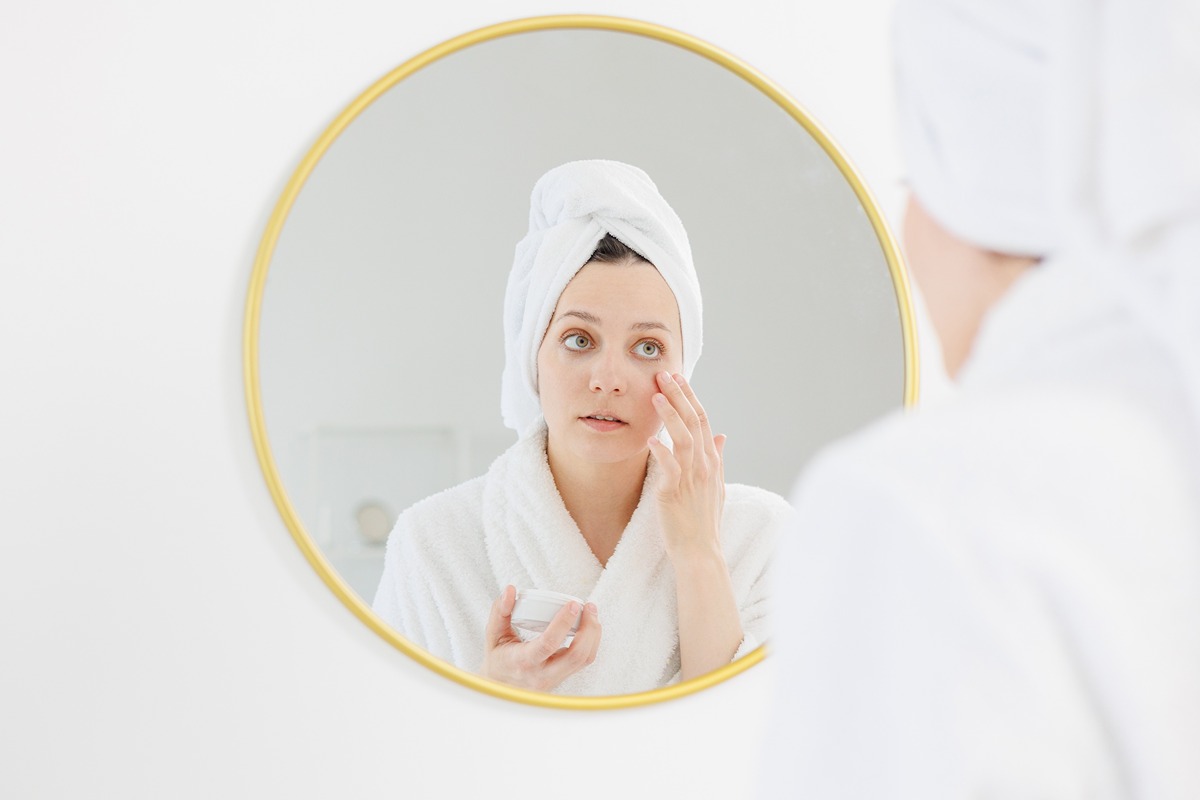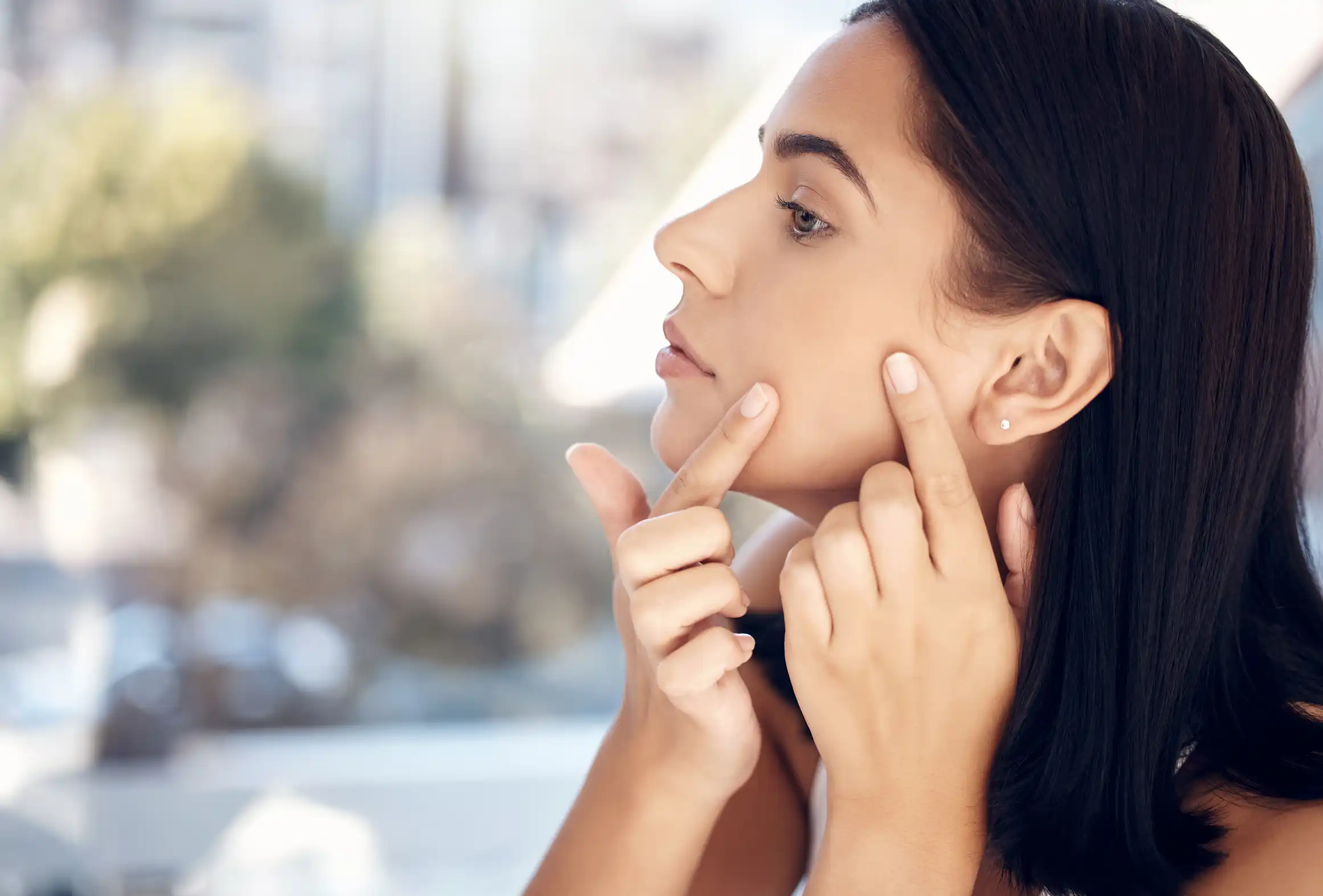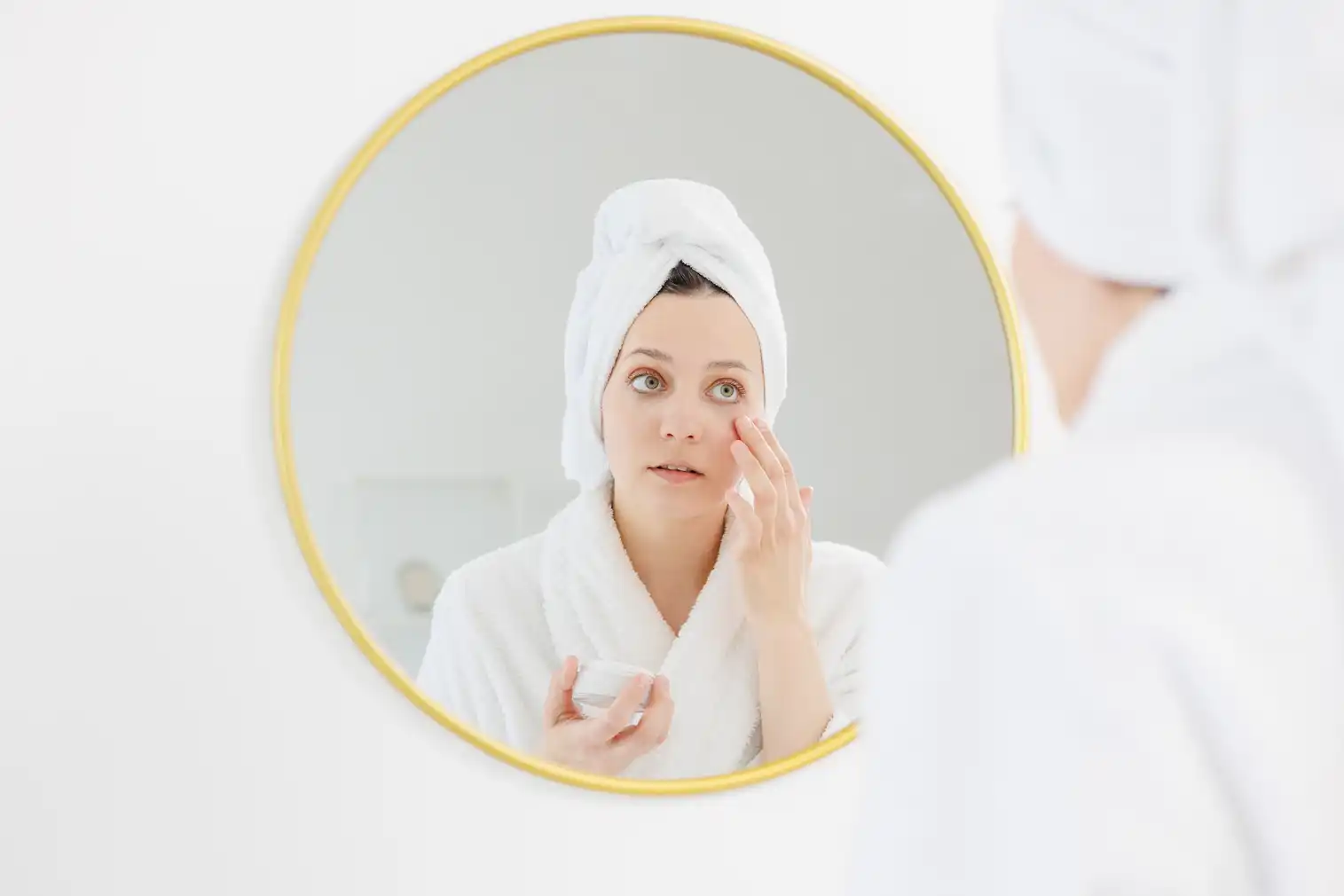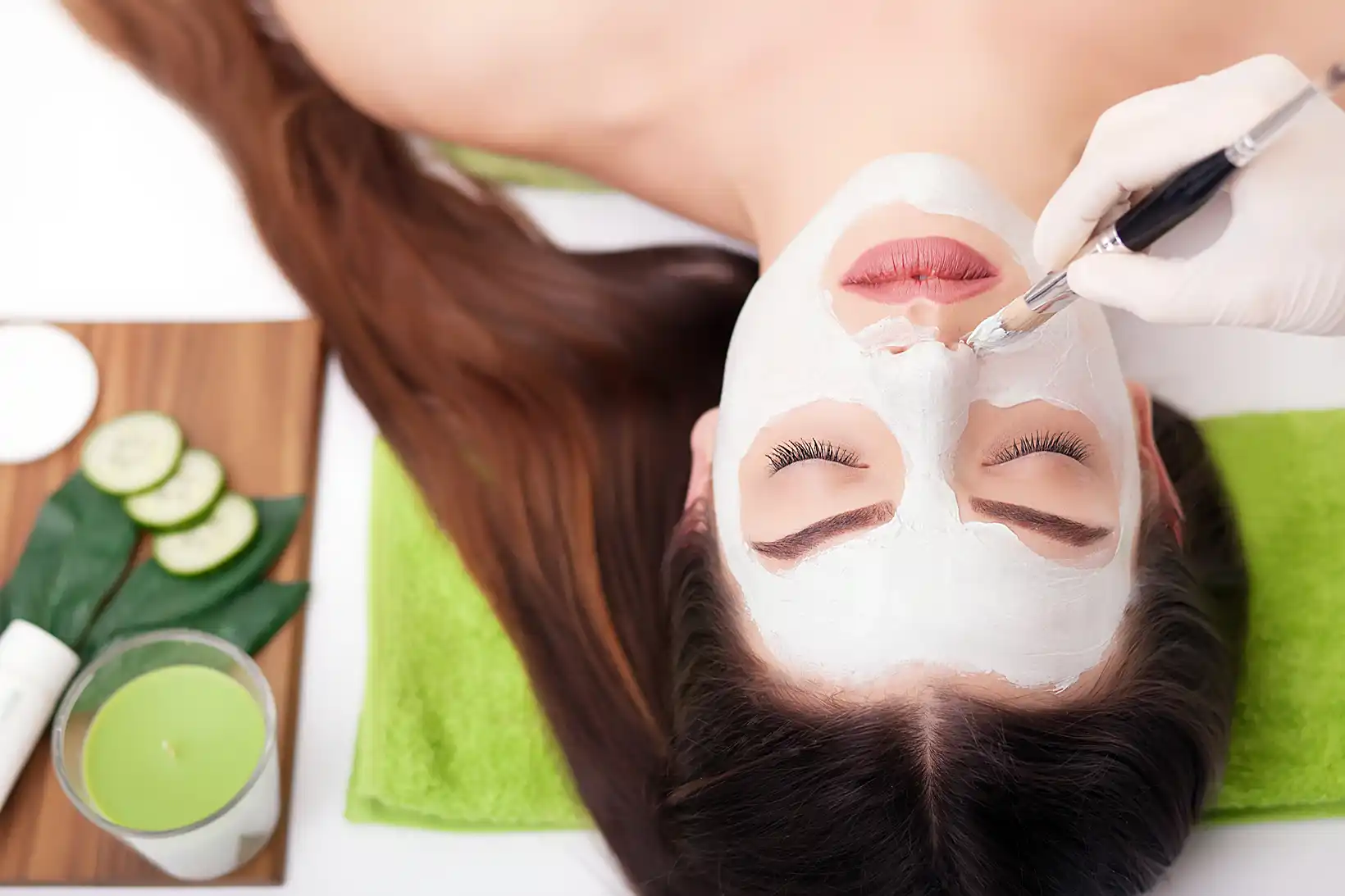
Acne scars can be frustrating and impact your confidence. They serve as a reminder of past breakouts, making you self-conscious about your skin. But fret not! There are natural ways to treat and reduce acne scars, helping you achieve clearer, smoother skin. In this article, we'll explore five effective methods that harness the power of nature to fade those pesky scars.

When it comes to skincare for acne scars, exfoliation is a powerful tool that can help fade those pesky reminders of past breakouts. By gently removing dead skin cells and unclogging pores, exfoliation promotes the growth of new, healthy skin. But with so many options out there, how do you know which exfoliant is right for you? Fear not! We've got you covered with this step-by-step guide on how to exfoliate properly and effectively.
There are different types of exfoliants suitable for various skin types and concerns. For acne-prone or sensitive skin, opt for chemical exfoliants like salicylic acid or alpha hydroxy acids (AHAs). These ingredients work by dissolving the bonds between dead skin cells, making it easier to slough them away. Physical exfoliants, such as scrubs or brushes, can be too harsh and irritating for acne scars, so it's best to avoid them.
Before diving into your exfoliation routine, make sure your face is thoroughly cleansed. Use a gentle cleanser to remove any dirt or makeup that might be lingering on your skin.
Apply a small amount of your chosen exfoliant onto clean fingertips and gently massage it onto damp skin in circular motions. Be sure to focus on areas with acne scars but avoid scrubbing too hard. Over-exfoliating can cause more harm.
Once you've thoroughly massaged your skin with the exfoliant, rinse it off with lukewarm water. Follow up with a hydrating toner or essence to soothe and replenish your skin's moisture barrier. This step is crucial to prevent dryness and maintain a healthy complexion.
After exfoliating, it's essential to seal in moisture with a lightweight, non-comedogenic moisturizer. Look for products specifically formulated for acne-prone skin, which won't clog pores or exacerbate breakouts. Don't forget to apply a broad-spectrum sunscreen with at least SPF 30 before stepping out into the sun. Sun exposure can worsen the appearance of acne scars and hinder the healing process.
Exfoliation is not a one-time fix. Consistency is key! Incorporate this step into your skincare routine once or twice a week, depending on your skin's tolerance and needs.

When it comes to skincare for acne scars, natural ingredients can work wonders. They not only nourish your skin but also help in the healing process. So, let's explore how you can harness the power of nature to bid farewell to those pesky acne scars.
One of the best things about using natural ingredients is that they are gentle on your skin, making them suitable for all skin types. Here are some specific natural ingredients that can fade acne scars and restore your skin's radiance:
1. Aloe Vera: It helps reduce inflammation and promotes healing. Apply fresh aloe vera gel directly on the affected area or look for skincare products that contain this ingredient.
2. Rosehip Oil: Packed with essential fatty acids and vitamins, rosehip oil is a powerhouse when it comes to fading scars. It moisturizes your skin while stimulating cell regeneration.
3. Tea Tree Oil: Known for its antibacterial properties, tea tree oil can help prevent breakouts and reduce the appearance of acne scars. Dilute a few drops with a carrier oil like jojoba or coconut oil before applying it to your skin.
Finding what works best for your unique skin type is key.

Hydration is the key to healthy, glowing skin, and it plays a crucial role in fading acne scars. By keeping your skin well-hydrated, you can promote regeneration and improve the overall appearance of your complexion. So, let's dive into the different ways you can quench your skin's thirst for clear, radiant skin.
First and foremost, drink plenty of water throughout the day. Hydrating from within is essential for maintaining your skin's moisture levels. Aim to drink at least eight glasses of water daily to keep your skin hydrated and healthy.
Additionally, incorporating hyaluronic acid-based products into your skincare routine can provide deep hydration. Hyaluronic acid can hold up to 1,000 times its weight in water, making it a powerful moisturizing ingredient. Look for serums or moisturizers that contain hyaluronic acid and apply them after cleansing and toning your face.
Another effective way to hydrate your skin is by using hydrating face masks. These masks are packed with nourishing ingredients that help lock in moisture while providing additional benefits like calming inflammation or brightening the complexion. Apply a hydrating mask once or twice a week.
When it comes to choosing moisturizers for acne-prone skin and scar treatment, opt for lightweight formulas that won't clog pores. Look for oil-free or non-comedogenic options that provide hydration without aggravating acne breakouts. Moisturizers containing ingredients like ceramides or niacinamide can also be beneficial.
To maximize the benefits of hydration, it's essential to maintain a consistent skincare routine. Cleanse your face twice a day using a gentle cleanser suitable for your skin type. Follow up with toner to balance pH levels and prepare your skin for better absorption of products. Then, apply your hydrating products, such as serums or moisturizers, and finish with a broad-spectrum sunscreen with at least SPF 30 to protect your skin from further damage.
Remember, sun exposure can worsen the appearance of acne scars, so protecting your skin from harmful UV rays is crucial. Make sunscreen a non-negotiable part of your skincare routine, even on cloudy days.

When it comes to tackling those stubborn acne scars, harnessing the power of skin regeneration is key. By promoting collagen production and encouraging new cell growth, you can fade those pesky reminders of past breakouts. Let's dive into some natural ways to boost your skin's healing process and say goodbye to acne scars for good.
Retinol has long been hailed as a miracle ingredient in skincare for acne scars. This vitamin A derivative helps speed up cell turnover, which can diminish the appearance of scars over time.
Another powerhouse ingredient for scar treatment is vitamin C. Not only does it brighten the complexion, but it also aids in collagen synthesis, resulting in smoother skin texture and reduced scarring.
For those seeking faster results, professional treatments like microneedling or chemical peels can be an effective option. Microneedling creates controlled micro-injuries that stimulate collagen production and encourage skin regeneration.
When incorporating retinol or vitamin C into your skincare routine, it's important to start slowly and proceed with caution. Begin by using these ingredients once or twice a week, gradually increasing frequency as your skin adjusts. Always follow the instructions on the product and consider patch testing before applying it to your entire face.
Patience is crucial when it comes to treating acne scars naturally. Results won't happen overnight, but with consistent use of retinol, vitamin C, or professional treatments, you can gradually fade those scars over time. Stick to your skincare routine diligently, and remember that everyone's skin is unique.

Recap of the five natural ways to get rid of acne scars discussed throughout the article:
1. Exfoliating for smooth skin
2. Nourishing with natural ingredients
3. Harnessing the power of hydration
4. Boosting skin regeneration with retinol and vitamin C
5. Embracing a journey toward clearer skin
Experiment with these methods and find what works best for your unique skin type and concerns. Don't forget to prioritize self-care and embrace the journey towards healthier, more radiant skin.
Your path to clear skin doesn't have to be complicated or costly. By incorporating these natural ways into your skincare routine you can take charge of fading those acne scars naturally.

